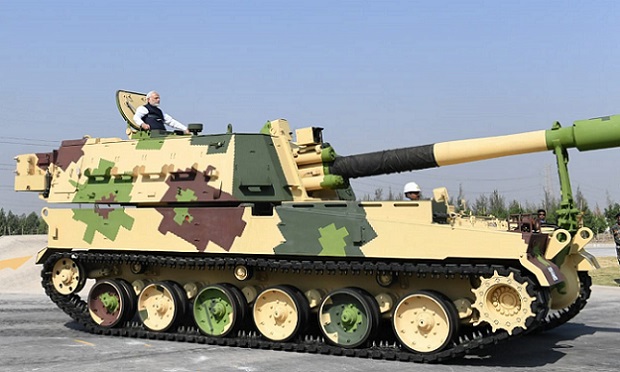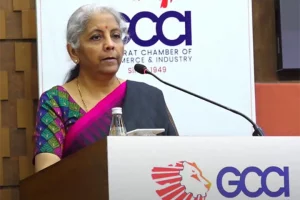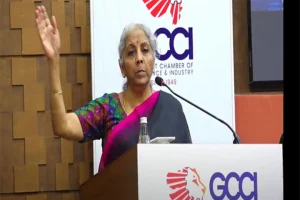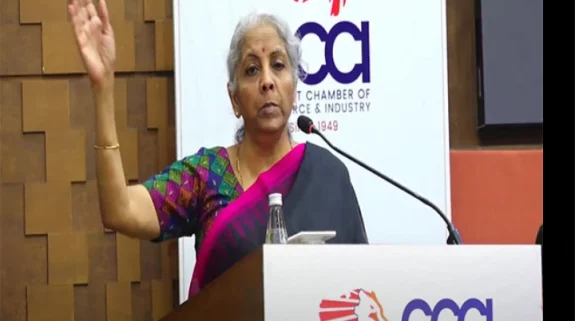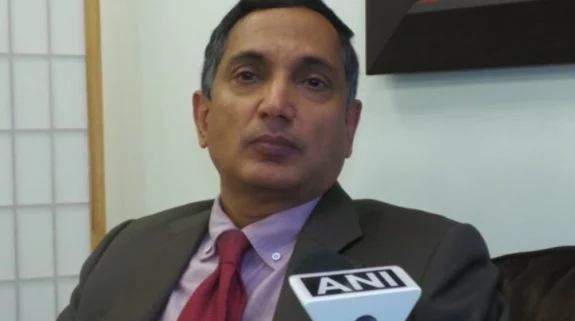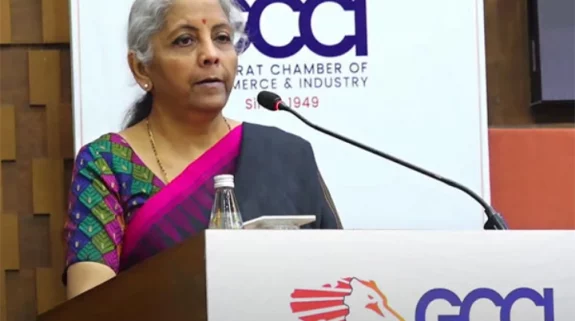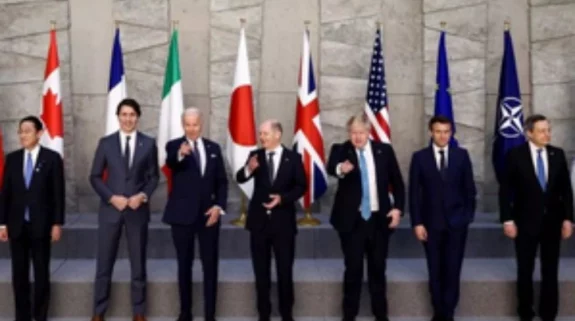The government's decision to restructure the Ordnance Factory Board (OFB) comes as a part of the clarion call given by Prime Minister Narendra Modi in May 2020 for an Atmanirbhar Bharat or the Self-Reliant India Movement. Announcing a special economic and comprehensive package of Rs 20 lakh crore – equivalent to 10% of India’s GDP – PM Modi had outlined five pillars of Atmanirbhar Bharat – economy, infrastructure, system, vibrant demography and demand.
On May 16, 2020, four days after PM's announcement, Finance Minister Nirmala Sitharaman had listed new horizons of growth and structural reforms across eight sectors paving way for Aatmanirbhar Bharat. It included promotion of 'Make in India' by enhancing self reliance in defence production and also corporatization of the Ordnance Factory Board to improve autonomy, accountability and efficiency in ordnance supplies.
Today’s announcements made by PM Shri @narendramodi led Govt. will go a long way in unshackling the economy in many ways. Corporatisation of the OFB has been the topmost priority of the Govt. The corporatisation will improve the efficiency of our Ordnance supplies & factories.
— Rajnath Singh (@rajnathsingh) May 16, 2020
The past and present of OFB
The Ordnance Factories are a conglomerate of 41 ordnance factories under the aegis of its corporate headquarters Ordnance Factory Board (OFB) in Kolkata. They have been catering to the needs of the armed forces for more than two centuries by providing them with arms, ammunition and equipment.
It was during 1775 that the British accepted the establishment of Board of Ordnance in Fort William, Kolkata which marked the official beginning of the Army Ordnance in India. The first Ordnance Factory, now known as the ‘Gun and Shell Factory’ at Cossipore in Kolkata was established in 1801.
The OFB came into existence on April 2, 1979 in the new avatar.

Since their inception, the Ordnance Factories have evolved as one of the largest defence manufacturing conglomerates in the world with more than 90 per cent of indigenous content and a strong technological and R&D infrastructure that currently contributes to 25 per cent of the revenue.
All 41 Ordnance Factories were set up in the country prior to 2014 to manufacture arms, ammunitions, artillery guns, tanks, combat vehicles, troop comfort items, Bi-Modular Charge System (BMCS), small arms and other equipment required by the armed forces, central para military forces, state police organisations and civil indenters. It is estimated that Ordnance Factories manufacture approximately 600 principal items
A majority of the R&D work being carried out by the Ordnance Factories is in collaboration with Defence Research and Development Organisation (DRDO) and premium institutes such as the IITs. The OFB has entered into an agreement with IIT Madras to develop Centre of Excellence for Ammunition at the institute that will power the development of futuristic ammunition such as precision guided ammunition. The OFB has also signed an MoU with the Council of Scientific & Industrial Research (CSIR) for advanced research.
OFB on road to corporatization
The OFB is an attached office of Department of Defence Production, Government of India.
During the past more than two decades, several high level committees like TKA Nair Committee, Vijay Kelkar Committee & Raman Puri Committee have inter-alia recommended that Ordnance Factories should be converted from a government department into a corporate entity.
Immediately after the announcement made last year, a High Level Official Committee (HLOC) of Department of Defence Production (DDP), Ministry of Defence (MoD), headed by an Additional Secretary along with senior Army officials, had commenced dialogue process with employee federations/associations.
In the meetings, the intent of the government to implement restructuring with involvement of all the stakeholders was conveyed and suggestions were invited from the members of the associations on ways to safeguard the benefits/interests of employees in terms of wages, salary, retirement benefits, health facilities and other service matters, while converting OFB into one or more 100 per cent government owned corporate entities. Suggestions were also sought from the employees on their concern regarding future orders and budgetary support needed from the government for the new corporate entity/entities.
In September, the government constituted an Empowered Group of Ministers (EGoM), under the Chairmanship of Defence Minister Rajnath Singh, to oversee and guide the entire process, including transition support and redeployment plan of employees while safeguarding their wages and retirement benefits. Other ministers in the EGoM are Home Minister Amit Shah, Finance Minister Nirmala Sitharaman, Minister for Law and justice Ravi Shankar Prasad, Minister of State for Labour & Employment Santosh Kumar Gangwar and Minister of State for Personnel, Public Grievance & Pension Jitendra Singh.
It was clear that the corporatization of Ordnance Factory Board has been initiated to enhance their efficiency and accountability.
The OFB future
With the government approving the long-pending restructuring on Wednesday, the 41 facilities will be converted in seven state-owned corporate entities. Terming the decision as "historic", Defence Minister Rajnath Singh has allayed the fears of around 70,000 OFB employees, assuring them that there will be no changes made in their service conditions.
"It is a big decision that complements India''s national security requirements. It will help in achieving our targets for defence production. There will be no change in service conditions of the employees," Singh said.

Officials told PTI that the seven entities are likely to take shape by the year's end and will be operated by professional management with a larger goal of enhancing the product range, increase competitiveness and improve cost-efficiency.
"This restructuring is aimed at transforming the ordnance factories into productive and profitable assets, deepening specialisation in the product range, enhancing competitiveness and improving quality and cost-efficiency," the news agency quoted one of the officials as saying.
The change is expected to bring a fresh energy and give a fillip to the 'Make in India' campaign at the same time. OFB is currently developing many critical weapon systems with cutting edge technologies. Prominent among these is the upgraded BMP II, an infantry combat vehicle (ICV) which will be equipped with missile firing capability.
The Ordnance Factories are also developing the Futuristic Infantry Combat Vehicle (FICV) which will be the successor of the upgraded BMP II. The OFB plans to have the prototype ready this year.






